Table of Contents
How to Deal with German Shorthaired Pointer Overweight?
German Shorthaired Pointers are sporting dogs, very active and need lots of energy burning exercises. If due to some reasons they lack activities, eat more than move, or have health issues restricting their movement, or hormonal imbalances, it is very easy for a GSP go gain access weight.
If you’re struggling with how to get your overweight GSP back to a healthy weight, don’t worry. You’re not alone. In this article, we’ll give you some tips on how to help your furry friend shed those extra pounds.
Challenges You May Face with a Fat GSP Dog
One common challenge people face when trying to help their GSP lose weight is not knowing how much to feed them. If you’re used to feeding your dog a certain amount of food, it can be hard to cut back. But it’s important to remember that your dog’s calorie needs will change as they lose weight. So you’ll need to adjust their food intake as they slim down.
Another challenge people often face is lack of exercise. If you’re not used to exercising with your dog, it can be hard to get started. But it’s important to remember that even a little bit of exercise can go a long way in helping your GSP lose weight.
If you’re struggling with how to help your overweight GSP lose weight, don’t worry. In this article, we’ll give you some tips on how to get started.
How Can You Tell if Your German Shorthaired Pointer is Overweight?
There are a few different ways to tell if your German Shorthaired Pointer is overweight:
- One way is to look at their body from above. You should be able to see a clear waistline. If you can’t, it’s likely that your dog is carrying around too much weight.
- Another way to tell if your GSP is overweight is to feel their ribs. You should be able to feel each individual rib without having to press too hard. If you can’t, it’s likely that your dog is carrying around too much weight.
If you’re not sure whether or not your GSP is overweight, you can always ask your veterinarian. They will be able to tell you whether or not your dog is at a healthy weight. A vet also takes blood, and the analysis shows, if there is any bad influence of the excess weight to different body organs.
Why is it Crucial to Keep your GSP in Healthy Weight?
There are a few different reasons why it’s important to keep your German Shorthaired Pointer at a healthy weight.
One reason is that carrying around too much weight can put strain on your dog’s heart, lungs, and joints.
Another reason why it’s important to keep your GSP at a healthy weight is that being overweight can lead to serious health problems like diabetes, high blood pressure, and arthritis. In fact, overweight dogs are more likely to die prematurely than their healthy weight counterparts.
So if you want your GSP to enjoy a long and happy life, it’s important to help them maintain a healthy weight.
Why My GSP Gets Overweight?
So, if your dog is gaining weight, it’s most likely that he is:
- Eating a high-carb diet
- Moving less
- Has been castrated (spayed)
- Age-related changes have started
What are Some Things You Can Do to Help Your GSP Lose Weight?
If you’re looking for ways to help your GSP lose weight, there are a few things you can do:
Feed GSPs a High Quality, Low Calorie Dog Food
One thing you can do to help your GSP lose weight is to feed them a high quality, low calorie dog food. There are a variety of these types of foods available on the market. So if you’re not sure which one to choose, ask your veterinarian for advice.
Be sure to review your dog’s food allowance in the following cases:
- After a sterilization (spaying) operation
- If there has been a significant decrease in the dog’s daily exercise routine
- At senior age (depending on the breed, some dogs begin age-related changes after the age of 5-7 years).
It is recommended that all such dogs be fed as recommended in the “Reduced Activity” column and that their body weight be monitored monthly.
You may also like
Cut Back on Treats and Table Scraps
Another thing you can do to help your GSP lose weight is to cut back on treats and table scraps.
Even if the food is given strictly according to the norm, but the dog gets regular calorie treats and rewards, he still gets fat. A family of 3-5 people is able to “feed” their GSP so that the recommended daily rate will be exceeded many times over. Therefore, all treats between meals should be canceled completely, and treats should be given only as encouragement in training or for desirable behavior. But they should not exceed 10% of the daily ration.
So if you want to help your GSP lose weight, it’s important to cut back on the treats.
Cut Back on the Food Intake
One final thing you can do to help your GSP lose weight is to cut back on their food intake. This can be a challenge if your dog is used to eating a lot of food. But it’s important to remember that even a small reduction in food can make a big difference over time.
If your dog always feel hungry, there are puzzle feeder toys and slow feeder bowls, helping to make the eating process not so fast with less food quantity.
If your dog feels hungry of the time and asks for food between feeding sessions, try to use treat dispensing toys from time to time. Your dog will be engaged in the activity – from one side, and will eat the same quantity of food but in a longer period of time.
These bowls also help to eat not so fast and feel saturation before the German Shorthaired Pointer overeats.
Make Sure Your GSP get Enough of Exercise
Hunting breeds require at least two hours of active walking. You can walk more if you like, as long as the workload is even and adequate. If you run a marathon with a dog that’s already obese, it will do you nothing but harm.
Remember, exercise without dietary control measures is not effective for weight loss!
You may also like
Best Toys for German Shorthaired Pointer
Increase Dog’s Exercise Gradually
If you’re not used to exercising with your dog, it’s important to increase their exercise gradually. Start with a few short walks around the block. Once your dog is comfortable with that, you can start increasing the length and intensity of their walks.
German Shorthaired Pointers are active dogs, so they need plenty of exercise. But if your dog is carrying around too much weight, it’s important to help them lose weight gradually. By following the tips above, you can help your GSP reach and maintain a healthy weight.
As we mentioned before, being overweight can lead to serious health problems like diabetes, high blood pressure, and arthritis.
Monitor Progress Closely
Once you’ve started working on helping your GSP loose weight, it’s important to monitor their progress closely. This means weighing them regularly and keeping an eye on their food intake and exercise levels.
If you’re not seeing the results you want, don’t be afraid to ask for help from your veterinarian or a professional dog trainer. They can give you more specific advice on how to help your GSP lose weight.
Losing weight is a gradual process, so it’s important to be patient. But if you stick with it, you can help your GSP reach and maintain a healthy weight.
Consult with a Veterinarian Regularly
Last but not least, it’s important to consult with a veterinarian regularly. This is especially true if your GSP is overweight. Your vet can help you create a weight loss plan that’s tailored to your dog’s specific needs. They can also offer advice and support along the way.
When it comes to helping your GSP lose weight, there’s no one-size-fits-all solution. But by following the tips above, you can help your dog reach and maintain a healthy weight.
Be Patient and Persistent
With a little time and effort, you can help your GSP lose weight and enjoy a healthier, happier life.
What if a Dog doesn’t Eat Much, but Gets Fatter?
Every pet is unique, so general rules don’t always work. Sometimes owners ask: Why does a dog eat little, but gets fat? Here we can assume the following.
- Hormonal disorders affecting the metabolism (for example, hypothyroidism). In such situations can not do without the advice of an experienced veterinarian and medication. The fight against excess weight may be long and difficult;
- Taking medications that promote weight gain (glucocorticosteroids, anticonvulsants). If the dog is in need of life-saving treatment and the side effect of that treatment is weight gain, the feeding ration should be adjusted.
- There are times when it seems to the pet owner that the dog isn’t eating enough, but he’s getting fatter. In fact, someone from the family secretly feeds it or the dosage of feeding, which was discussed above, is not observed. Monitor your dog’s food intake carefully and if that doesn’t help, get a consultation with your vet to check his health and help him put together a healthy, safe weight loss program.
Health Problems as a Consequence of Obesity
Diabetes
When a German Shorthaired Pointer is overweight, they are at risk for developing a number of serious health problems. These include diabetes, high blood pressure, and arthritis. Being overweight can also lead to joint problems and respiratory difficulties. So it’s important to help your GSP lose weight if they are carrying around too much weight.
High Blood Pressure
Another health concern for overweight German Shorthaired Pointers is high blood pressure. High blood pressure can be dangerous for any dog, but it’s especially dangerous for GSPs. This is because high blood pressure can lead to a number of serious health problems, including stroke and heart disease. So if your GSP is overweight, it’s important to help them lose weight and get their blood pressure under control.
Arthritis
Another common health problem associated with being overweight is arthritis. Arthritis is a painful condition that can make it difficult for your dog to move around. If your GSP is overweight, they are more likely to develop arthritis as they age. So it’s important to help them lose weight now to prevent this from happening.
Joint Problems
As we mentioned before, being overweight can lead to a number of health problems. One of these is joint problems. Joint problems are common in dogs who are carrying around too much weight. This is because the extra weight puts additional strain on the joints, which can lead to pain and inflammation. If your GSP is overweight, help them lose weight to prevent joint problems from developing.
Respiratory Difficulties
Lastly, being overweight can also lead to respiratory difficulties. This is because the extra weight puts additional strain on the lungs and makes it difficult to breathe. If your GSP is overweight, help them lose weight to prevent respiratory difficulties from developing.
Kidney Disease
Another health concern for overweight German Shorthaired Pointers is kidney disease. Kidney disease is a serious condition that can lead to a number of health problems, including organ damage and kidney failure. If your GSP is overweight, they are at risk for developing kidney disease. So it’s important to help them lose weight and get their kidney function under control.
Cancer
Lastly, being overweight can also increase the risk of cancer. Cancer is a serious disease that can be fatal if not treated early. If your GSP is overweight, they are more likely to develop cancer. So it’s important to help them lose weight to prevent this from happening.
Conclusion
As you can see, there are a number of serious health problems that can develop if your GSP is overweight. So it’s important to help them lose weight if they are carrying around too much weight. There are a few things you can do to help your GSP lose weight.
If your German Shorthaired Pointer is carrying around too much weight, it’s important to help them lose weight. This is because being overweight can lead to a number of serious health problems, including diabetes, high blood pressure, arthritis, joint problems, respiratory difficulties, kidney disease, and cancer. There are a few things you can
Frequently Asked Questions
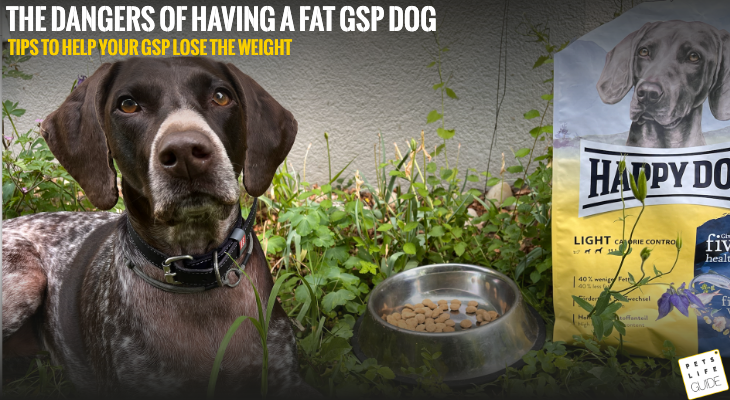
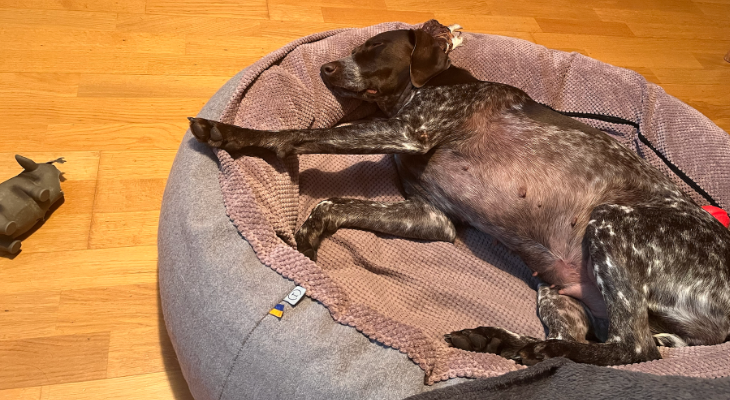
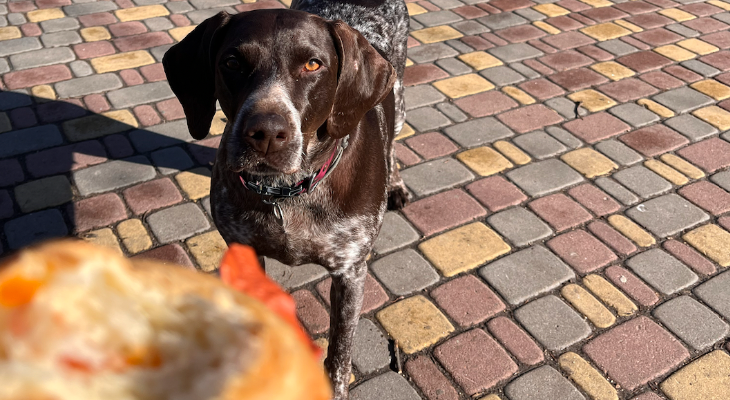
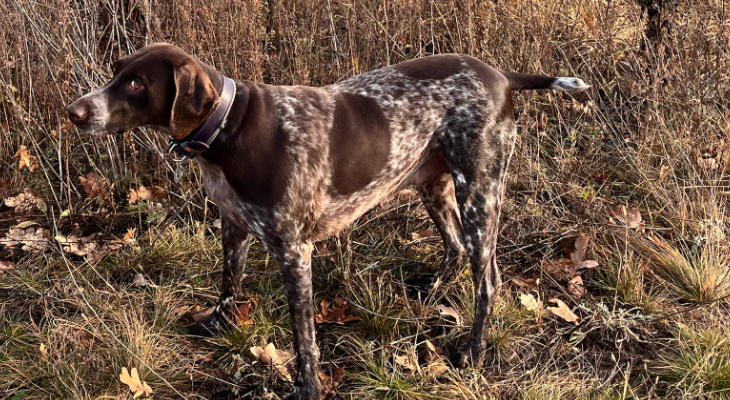
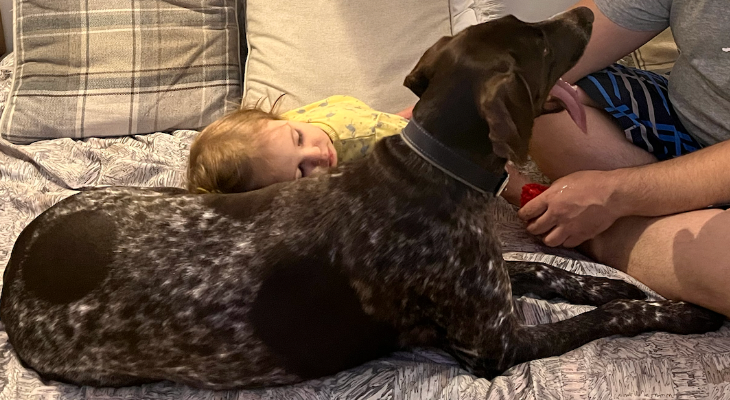




Leave a Reply